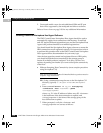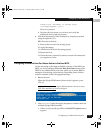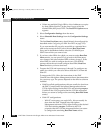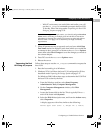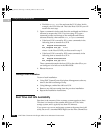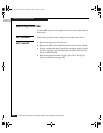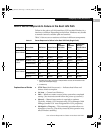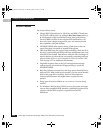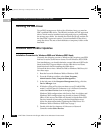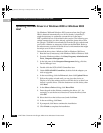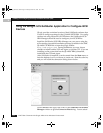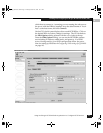
3
3-38
EMC Fibre Channel with QLogic HBAs in the Windows Environment
Configuring an EMC Boot Device
Known Issues
Be aware of these issues:
◆ QLogic BIOS 1.26 and later for QLA23xx and BIOS 1.79 and later
for QLA22xx HBAs allow for multiple Boot Port Name entries to
be configured for high-availability booting after path failures.
Previous BIOS versions do not support this functionality, will
boot only from a single storage array port, and cannot provide
boot capability with path failures.
◆ NTOSKNL BSOD (blue screen) during a link down event can
cause filesystem corruption to mounted filesystems.
◆ HBA boot BIOS does not support high availability while the OS is
booting. It can handle path failures at boot initialization time, and
after the OS has loaded. Path failures while the OS is loading will
require the host to reboot before successfully completing the boot
process. Refer to How a Server Responds to Failure in the Boot LUN
Path on page 3-37 for additional information.
◆ Degraded response time as the I/O load approaches storage
system capacity can make the OS appear hung or result in a
NTOSKNL BSOD.
◆ Boot files, Windows system files, and swap space should all be on
the boot LUN. With certain server models, you can use an internal
disk for the page file for stability; however, this might not
increase fault tolerance and might reduce system recovery
options.
◆ Swap space must be available on %SYSTEMROOT% or core dump
will fail.
◆ For Windows 2003 on 64-bit IA64-2 servers, the system no longer
uses an x86-compatible BIOS; therefore, enabling boot-from-array
support with the HBA requires a separate firmware EFI
download.
QLogic_Windows.book Page 38 Thursday, March 10, 2005 10:31 AM



